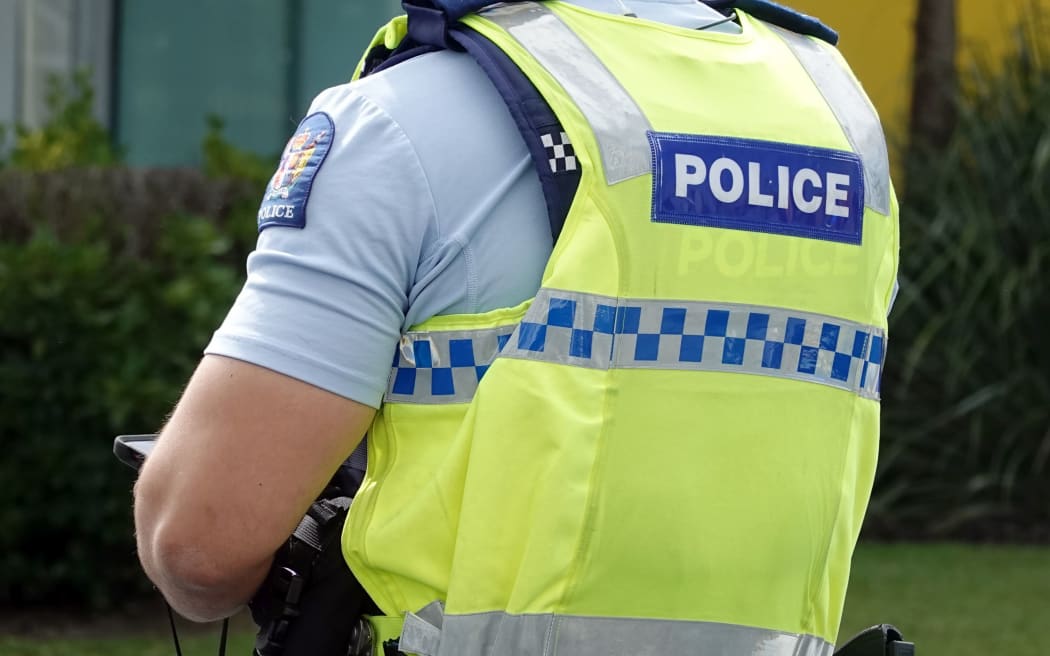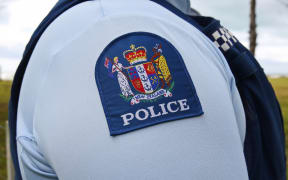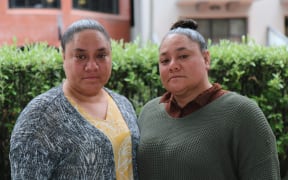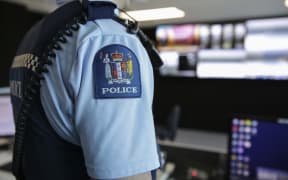Police have released a progress report on their work on bias, but 15 months after the programme started there are few concrete findings or definitive actions.

Photo: 123RF
The work, called Understanding Policing Delivery (UPD) programme, was announced by Police Commissioner Andrew Coster in March 2021.
It is investigating whether there is police bias in their treatment of Māori, Pasifika and other communities.
It is led by an independent panel of academics, researchers, and community leaders and led by longterm justice reform advocate Tā Kim Workman.
As yet there are no concrete findings about whether and to what degree bias exists in the force, or agreed actions to tackle it.
So far the programme has commissioned two reviews of local and international research, which have informed the panel's approach.
It has also decided that future research is to be led by kaupapa Māori methodology, as well as real world interactions between police communities.
It appears switching to a more Māori-led focus may have slowed progress.
A number of working groups have been set up pulling in staff from throughout the organisation, and panel members say they are optimistic the pace of change will pay off in the long term.
There is already considerable published research and evidence of systemic police bias - with Māori more likely to have force used against them, and more likely to be arrested and have the matter proceed to court action.
Police also released today a review of literature on bias from government agencies, academic institutions, and non-governmental organisations (NGOs) which notes that both explicit and unconscious bias is present in the police force.
Other police documents about the bias programme released today show terms like 'systemic' and 'structural' racism not well understood by officers, and the use of the term 'racism' is very polarising.
There is a lack of police data necessary to quantify rates of bias, and consistent areas of concern that have not changed over time.
They note the communications strategy with staff will be very important, slowly easing officers into more difficult conversations.
Coster told RNZ when the programme was launched it was about trying to find common ground with communities, and find facts and evidence so officers can understand the issues.
Time needed to make real change
Independent panel member and Dean of the School of Law at Auckland University of Technology Khylee Quince said "policing practices in Aotearoa have contributed to relationships of fear and mistrust amongst some in our communities".
"Enduring and authentic transformational change will take time to develop and implement if it is to be sustained and built upon consensus. I've been encouraged to date by [the] police's genuine commitment to this ground-breaking kaupapa."
Tā Kim Workman said the panel has taken the time to develop an approach which would engage police officers and communities as partners in the research process.
The panel has unanimously agreed that Kaupapa Māori should be central to the programme, with responsibilities to Te Tiriti / the Treaty of Waitangi prioritised as foundational.
Inspector Scott Gemmell is area commander for Counties Manukau East and chair of the Police Operational Advisory Group.
He said bias was a "really sensitive topic both for communities and for our staff. We're determined to front foot this issue - because if it matters to communities, it matters to us".
Coster said he looked forward to supporting the work of the panel as they started the active research phase of the work.
"This work will enable police to understand how different communities perceive us and clearly identify if there are any changes that we need to make to improve our policies, processes or practices.
"Our aim with this work is to give us a strong evidence base to help us make sure we are delivering a policing service that is fair and equitable for all."
What will the programme do next?
The police are next going to research:
- Who police stop and speak to, and how police behave in these situations
- How decisions about when and why to use force are justified
- How decisions about laying charges are made
They will speak to frontline officers and the community.
Terms like 'systemic' and 'structural' racism not well understood by officers
The Operational Advisory Group is made up of a group of front line staff.
A summery of its work noted:
- Terms such as 'institutionalised', 'systemic' and 'structural' racism were not well understood by officers, and the meanings would be difficult to convey to such a large workforce. Use of these terms will need careful planning and relevant examples
- Views on the use of the term 'racism' were mixed, and would likely provoke a negation reaction from some members of the workforce
- Comparing New Zealand to US policing was challenging as officers felt the US was much more extreme in their approach
- Many officers were children during events such as Bastion Point, the Springbok Tour, the Dawn Raids - more recent examples of systemic bias and racism would be helpful to make it relevant
Conversations with officers key, confronting talk to come a little later
The Leads Group is made up of Kim Workman along with internal police bosses responsible for parts of the bias programme, and outside experts.
Key findings show:
- Communications strategy was critical
- The term 'racism' generates strong feelings and the group agreed that this was not about personal behaviour - it will be focussed on structural/institutional matters in line with the focus of the overall programme
- The 'Police Be First, Then Do' programme to start internal communications in a positive way and gradually opening up to more confronting topics
- The journey is expected to be bumpy, media releases will be planned and well supported, as the sentiment from the community can be challenging and hurtful to hear
- Community experiences need to acknowledge while balancing this with consideration and reassurance for Police staff, noting that for the most part, staff joined Police to help people
- Focus on storytelling, highlighting when Police have demonstrated fairness, equity and compassion told by communities
Research shows lack of police data about bias, or change over time
An independent Māori research institute has found:
- A lack of Police data necessary to quantify rates of bias
- Consistent areas of concern that have not changed over time
- Individualising responses to allegations of bias is insufficient
It recommends:
- Explore legislation, policies and practice guidelines
- Gather data from independent researchers rather than using Police data
- Review IPCA processes and approaches
- Explore how the perception of 'unsafe communities' shapes understandings of police legitimacy
Switch to more Māori-led focus may have slowed progress
Based on papers released today it appears part of the reason for the time taken to get to this stage is the decision to switch away from the Waikato University research unit Te Puna Haumaru NZ Institute for Security and Crime Science leading the research.
This was to allow a broader process for selecting the research team decisions "especially for parts where criteria such as Māori leadership and strong relationships to Māori communities were important."
Te Puna Haumaru did do the research looking at the international literature review of studies of bias.
Key findings from the international literature review
- Many countries have diversified their police workforces; this hasn't necessarily reduced disparities
- Training programmes have been used in many places; there is mixed evidence on the effectiveness
- It is important to consider how the legacy of colonialism influences how different social/ethnic groups view the police and vice versa
Programme comes after widespread photographing of Māori youth revealed
The programme was launched after reporting by RNZ that revealed in December 2020 that officers in Wairarapa were unlawfully photographing young Māori.
Subsequent reporting by Te Aniwa Hurihanganui suggested the practice was widespread.
In January the police announced they were tightening the rules for officers photographing young people.






